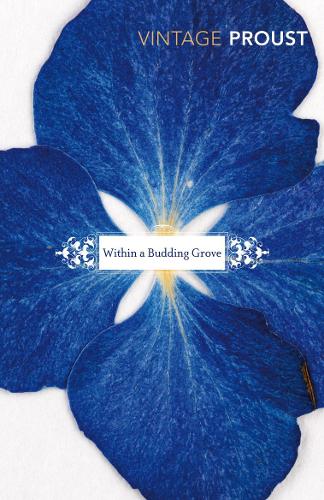
In Search of Lost Time, Vol 2: Within a Budding Grove
(Paperback)
Publishing Details
In Search of Lost Time, Vol 2: Within a Budding Grove
By (Author) Marcel Proust
Translated by C. K. Scott Moncrieff
Translated by Terence Kilmartin
Revised by D. J. Enright
Translated by D. J. Enright
Vintage Publishing
Vintage Classics
10th January 1997
5th December 1996
United Kingdom
Classifications
General
Fiction
Modern and contemporary fiction: literary and general
843.912
Physical Properties
Paperback
656
Width 131mm, Height 197mm, Spine 35mm
469g
Description
The definitive translation of the greatest French novel of the twentieth century THE ACCLAIMED FULLY REVISED EDITION OF THE SCOTT MONCRIEFF AND KILMARTIN TRANSLATION Within a Budding Grove describes the first shoots of an astonishing love affair. When Proust's adolescent narrator travels from Paris to the sunny seaside town of Balbec he meets an intriguing set of new acquaintances who provide him with both friendship and entertainment. Most significantly of all he meets a dark-haired girl with sparkling eyes and a tiny beauty spot on her chin- the mysterious Albertine, who will become the great love of his life.
Reviews
Scott Moncrieff's translation was rather like swimming through syrup...Kilmartin and Enright have produced a version that wonderfully proves the greatness of this novel, this novelist. The prose that describes Swann's sexual obsession, for instance, is so good you have to stop after many a paragraph, re-read, think over it -- Melvyn Bragg * Guardian *
What a genius! Whole pages cascade, like great jazz slaloms -- Bill Nighy * The Times *
One of the cornerstones of the Western literary canon * The Times *
Surely the greatest novelist of the 20th century * Sunday Telegraph *
As close to being a definitive English version of the great novel as we are likely to get. This new edition will serve to introduce new generations of readers to what Somerset Maugham rightly described as the greatest novel of our century -- Allan Massie * Scotsman *
Author Bio
Marcel Proust was born in Auteuil in 1871. In his twenties he became a conspicuous society figure, frequenting the most fashionable Paris salons of the day. After 1889, however, his suffering from chronic asthma, the death of his parents and his growing disillustionment with humanity caused him to lead an increasingly retired life. He slept by day and worked by night, writing letters and devoting himself to the completion of A la recherche du temps perdu. He died in 1922 before publication of the last three volumes of his great life's work.
